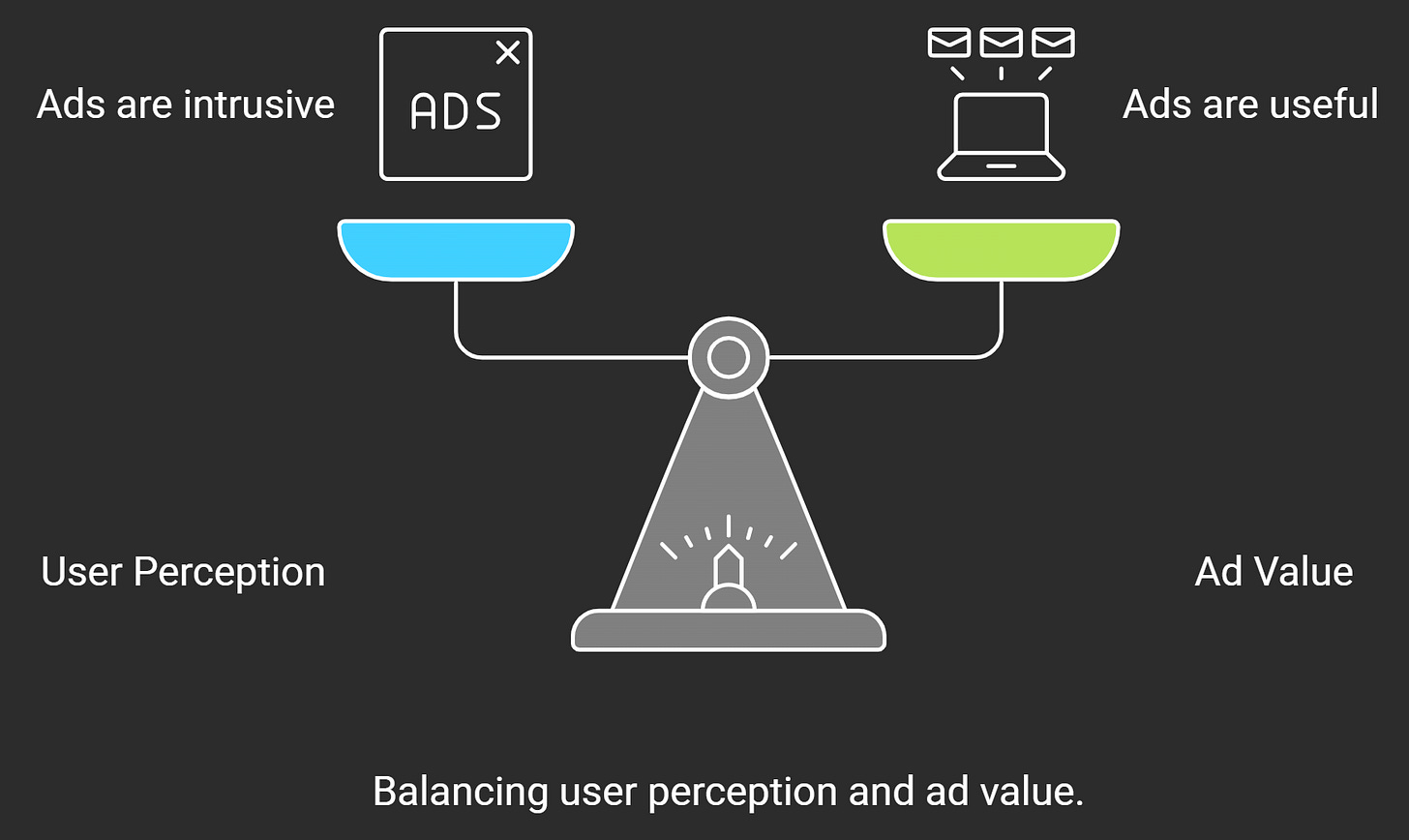Source:
Sahni, N.S., Zhang, C. Are consumers averse to sponsored messages? The role of search advertising in information discovery. Quantitative Marketing and Economics 22, 63–114 (2024). https://doi.org/10.1007/s11129-023-09270-z
Do you ever feel like the internet is just one giant "Buy Now" button disguised as a website? We’ve all been there, right? Scrolling, scrolling, scrolling, just trying to fly through all those ads to find something useful.
But what if those ads aren’t the enemy we make them out to be? That's the surprising argument made by a recent research paper titled “Are Consumers Averse to Sponsored Messages?”
On this episode of Marketing Science Lab, we take a deep dive into this fascinating research that challenges our assumptions about search engine advertising (Sahni, 2024).
The Search Engine's Dilemma: Balancing Relevance and Revenue
The paper highlights a key dilemma faced by both search engines and users. Search engines like Google strive to show us the best, most relevant results for whatever we’re searching for. Makes sense, right? That's their whole job!
But, and this is a big but, the internet is huge! Think over a hundred trillion web pages. Huge!
So even with those super sophisticated algorithms they’ve got, no search engine can truly know everything that’s out there. So how do they fill in the gaps?
Enter Advertising: A Megaphone for Hidden Gems?
The authors of this paper argue that advertising, those ads we sometimes love to hate, can actually help!
Think about it: imagine you’ve just opened up an amazing new restaurant, the best tacos in town, hands down. But the search engine has no idea you exist. You haven’t had time to build up reviews or anything. So how do you break through all the noise?
Advertising can be that megaphone, a way to cut through all the clutter and say, “Hey, we’re here, we’re delicious, come try us out.”
The Experiment: Less Advertising, Less Usage?
To study this, the researchers partnered with a major US search engine (they kept the name secret for the study). They took a massive group of users and split them in half randomly.
Group 1 (Status Quo): Saw the usual amount of ads, just business as usual.
Group 2 (Low Ad): Saw significantly fewer ads, specifically those “mainline ads” at the top of the search results, the ones you see first thing.
The Results: Ads as Helpful Road Signs
The researchers didn’t just look at whether people clicked on the ads more or less, they wanted to see the bigger picture: how did people use the search engine overall when they saw fewer of those mainline ads?
Here's the kicker: people who saw the usual number of ads, the ones who weren’t deprived of those mainline ads, actually ended up using the search engine significantly more.
Wait, so you’re telling me that seeing those extra few ads actually helped people find what they were looking for more effectively?
The data says yes. And you know what, it makes sense when you think about it.
Think about those mainline ads almost like little signposts, pointing people toward information or businesses they might not have discovered on their own, especially in those fields where things are constantly changing. Those ads can be crucial for staying in the loop.
It’s like they’re saying, “Hey, we know you’re looking for this specific thing, but while you’re here, you might also like this.”
A Secret Advantage for Savvy Searchers
And what’s even more interesting, the researchers found this effect was even stronger for people who regularly use multiple search engines.
The people who are really serious about finding the absolute best information online—precisely the ones who are willing to shop around and try different options if something isn’t working for them. So they’re the ones who really know how to work the system.
And they were more likely to stick with the search engine that showed them more mainline ads. That’s telling, don’t you think?
It is! It’s like those ads were giving them a secret advantage in their online quest for information.
Rethinking Our “Ads = Bad” Reflex
This whole study really challenges us to rethink that automatic "Ugh, ads!” response. Right, because we tend to see all ads as inherently bad or annoying.
But this study suggests that, at least when it comes to search ads, the ones we see when we’re actively looking for information, maybe they’re actually doing us a favor.
It seems that way, even if we don’t consciously realize it. It’s like, instead of those ads being like intrusive billboards, they're more like helpful road signs, guiding us toward things we might have otherwise missed.
The Takeaway: Don’t Automatically Scroll Past
So to our listeners out there: the next time you see an ad online, don’t just automatically scroll past it. Take a second and actually look at it. Ask yourself: is this trying to tell me something useful?
Interactive Study Guide: https://quizlet.com/study-guides/rethinking-consumer-attitudes-toward-search-ads-a5707913-bc51-4ffc-8430-128e1798abe9?i=3i62em&x=13qt













